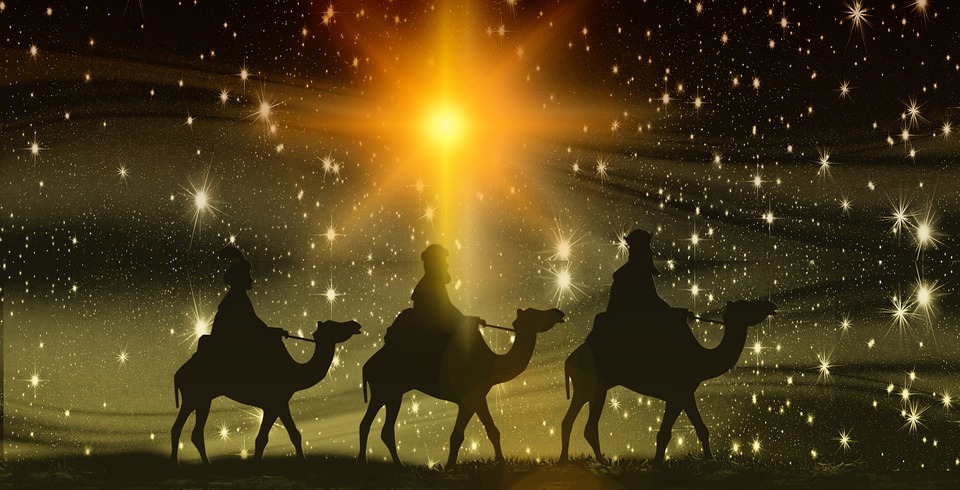On January 9, we will begin our twelfth year of our Bible Study Group. An outline of our lessons over the years is HERE. This year we are going to start with a study of the biblical stories related to the Epiphany season using the hymn Songs of Thankfulness and Praise. 1979 Hymnal 135.
Epiphany Study:
January 6 is the Feast of the Epiphany. “Epiphany” means the appearance or manifestation of a god, and it is during this season that the Church celebrates the manifestation of Christ to the world and the revealing of Jesus as God. The Epiphany Season runs from January 6 to the Tuesday before Ash Wednesday. Our hymn was written to be sung on the last Sunday of Epiphany to serve as a recapitulation of the successive manifestations of Christ that had been presented in the gospel readings over this entire season. Our outline over the next five weeks will be as follows:
- January 9 – stanza 1 – Visitation of the Magi – Matthew 2:1-12.
- January 16 – stanza 2.1 – Baptism of Jesus – Matthew 3.
- January 23 – stanza 2.2-3 – Wedding at Cana – John 2:1-12.
- January 30 – stanza 3 – Healings and Exorcisms – Mark 1:21-34, Mark 2:1-12, 5:1-13.
- February 6 – stanza 4.1-3 – Transfiguration – Mark 9.
- February 13 – Mardi Gras
The Visitation of the Magi:
This week we will be discussing the story of the Visitation of the Magi found in Matthew 2:1-12. Within this story, we remember and celebrate the first manifestation of Christ to the Gentiles (the Magi). This fulfills the promise that all the nations, not just Israel, will be blessed through him. Gen 12:3, Isa. 60:3. Matthew tells us very little about who the Magi were, where they came from, the nature of the star that they followed, or even how many there were. A good discussion on the Magi from Kenneth Bailey’s Jesus Through Middle Eastern Eyes is attached. pp.48-55. Several years ago, The Economist magazine explored these questions concerning the Magi from a more secular perspective. Its article is HERE.
One of Matthew’s primary purposes in telling us the story of the Magi is to reinforce the early Christian understanding that the Messiah did not come solely for the blood descendants of Abraham but for the whole world. Also, what we see in the Magi is that the coming of the Messiah is not only foretold within the Jewish tradition but within nature and pagan culture as well. Just as Paul explicitly tells us that the knowledge of God can be found in nature and in pagan philosophy so here does Matthew. See, Rom. 1:20, Acts 17:16-34. In his book The Infancy Narratives, Pope Benedict XVI observes that in the Magi we have “a confluence of Jewish and non-Jewish ideas into a single new stream. The natural world itself is brought in: Saturn and Jupiter, in conjunction in 7 BC, lead the Magi to Bethlehem. [The Pope’s explanation of the star.] The Wise Men thus represent the religions moving toward Christ, as well as the self-transcendence of science toward him. The whole cosmos speaks of him.”
Dinner is at 6. The menu is chicken marbella. Discussion about 6:45. Compline at 8. If you have not joined us in a while, please consider making us a part of your new year. All you will need is a bible, and if you do not have one, we have extra here.
O God, by the leading of a star you manifested your only Son to the peoples of the earth: Lead us, who know you now by faith, to your presence, where we may see your glory face to face; through Jesus Christ our Lord, who lives and reigns with you and the Holy Spirit, one God, now and forever.
Collect for The Epiphany, 1979 BCP 214

